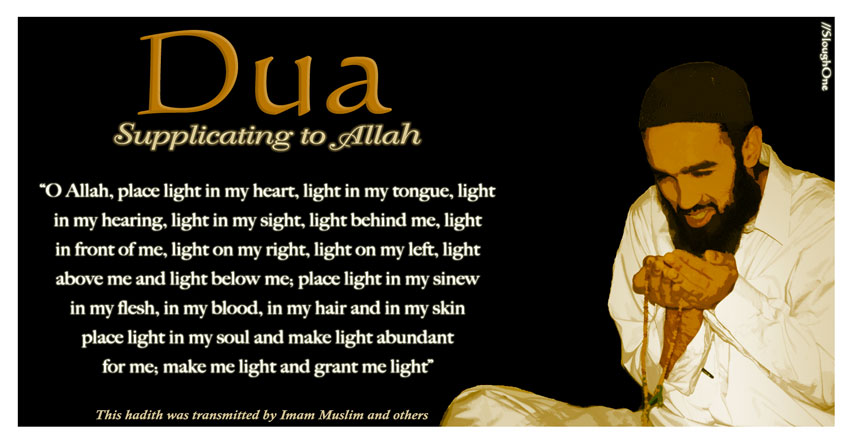One of the holiest and most
significant nights of the Islamic calendar is the night of the 15th of Shaban,
also known as Shabe Barat. It is on the night of the 15th of Shaban that the
Holy Prophet Muhammad (S) taught is the beginning of the new year in the
spiritual realm, and that on Shabe Barat, the 15th of Shaban, the affairs of
human beings are arranged in the Divine Presence for the coming twelve months.
Mid-Sha'ban is the 15th day of the eighth month of the Islamic lunar calendar.
The preceding night is known as Laylatul Bara’ah or Laylatun Nisfe min Sha’ban
in the Arab world, and as Shab-e-barat in India and other muslim countries. Shab e Barat will be celebrated on 24th June 2013 in all the places. After Shabe e Barat, Ramadan is the next holy month in Muslims calendar.
1) 15th Night of Shaban or Shab e Barat, as it is known, is one of the blessed nights in the Islamic calender.
2) Make sure that you offer all the prayers in the masjid with Jamat. (This should be done in other days as well)
3) Make use of this blessed night by involving your self in individual nafl prayers. That includes recitation of quran, any zikr, nafl salah and most importantly, Dua!
4) Make as much dua as possible for the Ummah and for yourself.
5) There
is no fixed or particular prayer for this night therefore stay away from
any such gatherings where Nafl prayers are being offerd in Jamat.
Allah(SWT) has granted us this night to get in touch with him personally
and individually. We should value this opportunity and avoid
gatherings.
6) It is
not mandatory at all to stay up the whole night. Pray as much as you can
conveniently. After that go to sleep and make sure you offer Fajr Salah
in time in the Masjid.
7) You may
also visit the graves of your loved ones, as it was done by our beloved
Prophet(SAW) as well. However, it is not mandatory. Also, keeping in
mind the sort of gatherings that take place at graveyards in these
nights, it is sometimes better not to visit as one might get involved in
sins.
8 ) Dua is the true essense of this night. Involve yourself in as much dua as you can
Things to be avoided on Shab e Barat:
1) Stay away from Bidaat. Stick to the simple straight path, i-e the Sunnah.
2) Shab e Baraat has nothing to do with Halwa, Fireworks and other such non-sense.
3) Farz
Salah is of much greater importance than any Nafl Prayer. Therefore make
sure that we do not stay up so late that we end up missing the Fajr
Salah.
7 Types of People Who Will Not Be Forgiven on Shab e Baraat
Following
are the types of people who, according to hadith, will not be forgiven
even on the blessed night of Shab e Barat (if they do not repent).
However, if someone repents from these sins, then Allah(SWT) is all merciful and will surely forgive him.
1) Mushrik (those who associate partners with Allah).
2) The one who cuts off the ties of kinship (qata’ rehmi).
3) The one who covers his ankles with pants, shalwar or any other garment coming from the top (for men only)
4) The one who is disobedient towards his parents
5) The one who drinks Alcohol
6) The one who kills an innocent Muslim.
7) The one who keeps Keena (enmity) or nourishes malice in his heart for other Muslims.
Exchange of Nama-e -Amal
In Shabe-e-Barat the Nama-e –Amal which is also known
as the record book of bad and good deeds is exchanged with the new
Record book or Nama-e –Amal and kept safe among the other record books
since the time of birth to exchanging time, the angels also write the
births, deaths of the individuals in the very same night by the
commandment of Almighty Allah. It contains all the deeds which the
individual has done in the past year, the Almighty Allah has gifted that
night to ask the forgiveness by saying prayers.
Message of Blessing Night:
Dear Muslim Brothers and Sisters! The Almighty Allah
has provided us an opportunity with an infinite mercy to ask him for
forgiveness regarding our sins in such an auspicious night. His Grace
and favor is waiting for us now it’s our Turn to get the maximum
blessings of Almighty Allah by offering Special Prayers and repent
sincerely for our past sins and ask for forgiveness from core of heart.
OH Allah! Send Your Peace of blessings on the Final
Prophet PBUH and his companions and those who follow him. My sins are
like a huge mountain, my good deeds are like a small pebble I turn to
you with full of shames; restore your mercy and forgiveness upon me.








